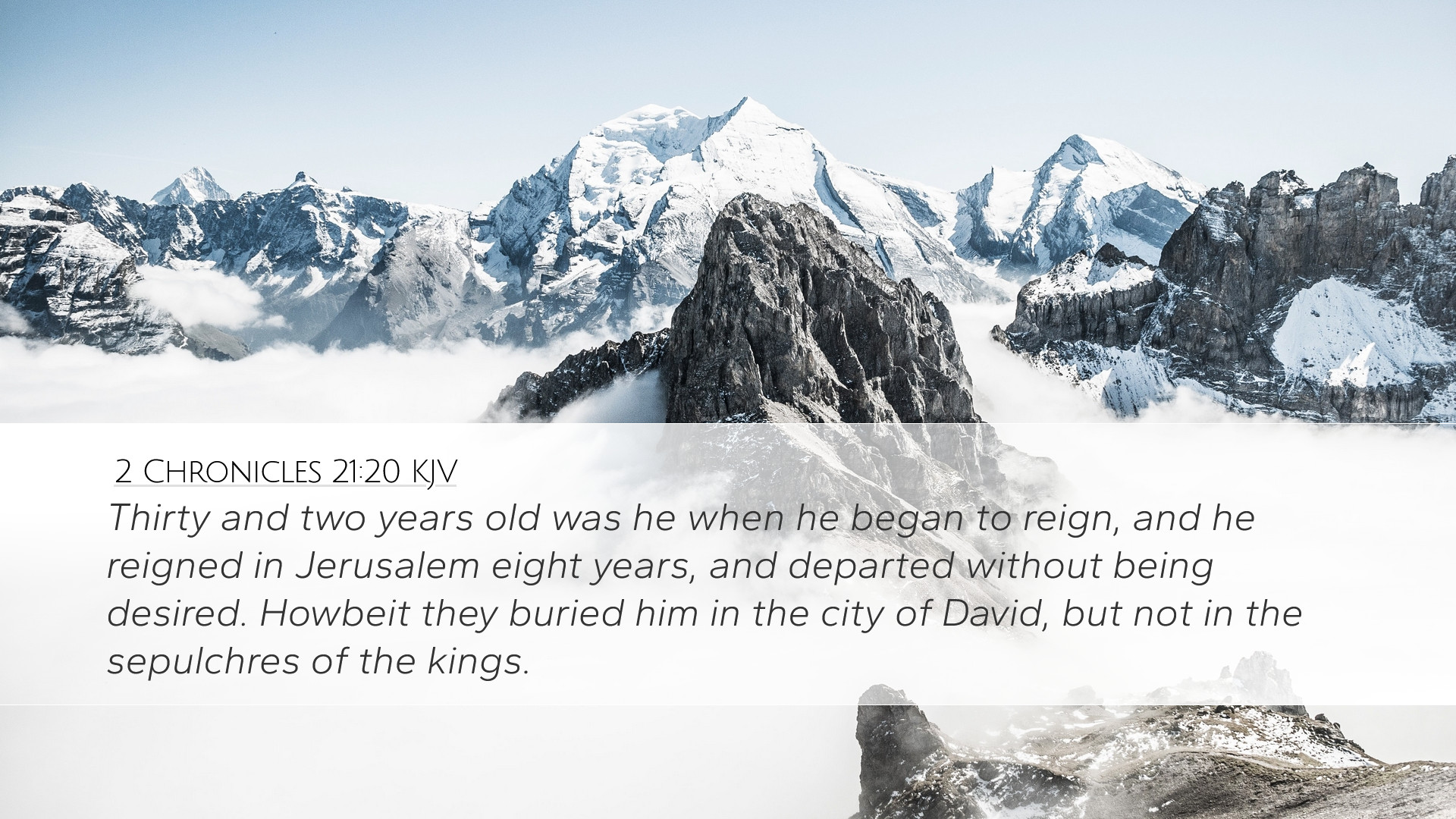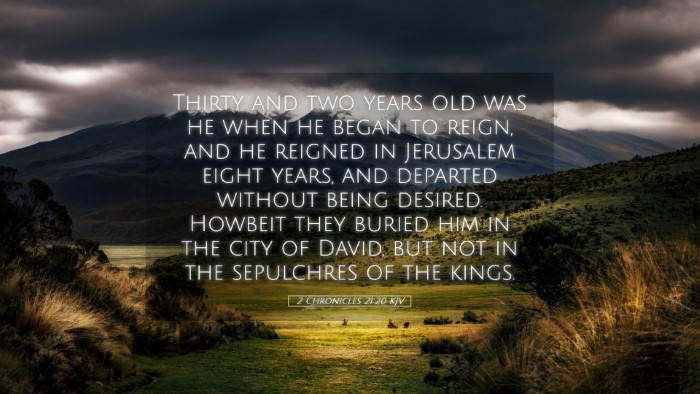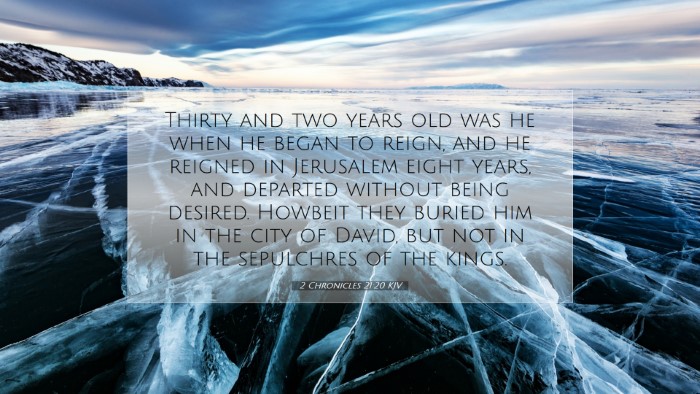Commentary on 2 Chronicles 21:20
Bible Verse: "He was thirty-two years old when he became king, and he reigned in Jerusalem eight years. And to no one's sorrow he departed. They buried him in the City of David, but not in the tombs of the kings."
Introduction
This verse summarizes the brief and troubled reign of King Jehoram of Judah. His life and rule serve as a cautionary tale of the consequences of turning away from God's commandments and the impact of poor leadership on a nation.
Contextual Background
Jehoram ascended to the throne as a member of the Davidic line, the son of King Jehoshaphat, known for his commitment to God. However, Jehoram's reign signifies a departure from this legacy as he adopted practices from the northern kingdom of Israel, leading Judah into corruption.
Historical Significance
Historically, Judah's kingship displayed a duality—some kings, like Jehoshaphat, sought to please God while others, like Jehoram, embraced idolatry. This divergence reflects broader themes in the Hebrew Bible concerning loyalty to God and the resulting national stability or chaos.
Verse Analysis
Age and Duration of Reign
Age at Accession: Jehoram was thirty-two years old upon ascending the throne. This detail emphasizes his maturity; however, it juxtaposes against the immaturity displayed during his reign.
Length of Rule: An eight-year reign could signify a complete term but is markedly shorter when compared to the lengthy reigns of many of his ancestors. This brevity may reflect divine judgment on his actions.
Reputation and Death
“To no one's sorrow he departed”: This phrase indicates the lack of mourning over his death, suggesting his reign was marked by tyranny or spiritual deterioration, contrasting sharply with the reverence typically accorded righteous kings.
Burial Practices: The manner of his burial also speaks volumes. Jehoram was buried in the City of David, yet not among the kings. This omission marks a significant disfavor, suggesting that he failed to achieve a kingly legacy and perhaps infers divine judgment.
Theological Implications
Divine Judgment
The absence of mourning suggests that, despite holding the title of king, Jehoram's actions rendered him unworthy of respect or remembrance. This notion aligns with Matthew Henry’s view that God's favor is intrinsic to a leader's legacy; without it, public opinion reflects divine displeasure.
The Consequences of Idolatry
Turning from God: Jehoram's embrace of idolatry and high places led the nation away from Yahweh. His reign serves as a reminder of the dangers of distraction from divine commandments. Adam Clarke notes that the introduction of idolatrous practices contributed to the people's moral decline, culminating in national disarray.
Lessons for Today
- Moral Responsibility: Leaders have a moral obligation to foster environments that lead others toward God, not away from Him.
- Legacy of Leadership: A leader’s legacy is not only what they achieve but also how they align with God’s will. A failure to do so can result in a legacy of lament rather than honor.
- Public Opinion vs. Divine Judgment: The judgment of God surpasses human perspectives, and the absence of praise posthumously reflects the deeper spiritual truths concerning an individual's life.
Conclusion
The life and reign of Jehoram remind both clergy and laity of the significance of spiritual fidelity. His lack of a mournful farewell reflects not only personal failure but a broader societal decline resulting from misaligned leadership. As we reflect on this passage, it challenges us to consider the impact of both our personal choices and collective actions as we endeavor to be leaders who stand firm in faith.


